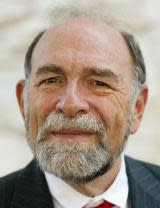Rabbi Barry Marks: For myself, but not for myself alone
The "Ethics of the Fathers" is a tractate of the "Mishnah," the codification of Jewish legal traditions that had originally been transmitted orally and were subsequently redacted and published around 200 CE. This tractate, consisting of six brief chapters, is, unlike the rest of the Mishnah, non-legal in character; it is a collection of maxims and wise sayings attributed to the sages of the last centuries BCE and the first two centuries CE and expressing their philosophy of how to live a good life.
Many such maxims are attributed to Hillel, a celebrated teacher and spiritual leader who had a prominent role in shaping and interpreting the legal traditions. Perhaps his most famous saying is one that delineates the balance toward which we should aspire in life. “If I am not for myself, who will be for me? And, if I am for myself alone, what am I?”
Being for oneself, to my mind, speaks to the necessity for people to be assertive, to demand to be treated with the respect that is due to them, to resist being complicit in their abuse, exploitation or manipulation by others. In the real world, this is easier said than done. There are often power imbalances that make assertiveness difficult or challenging. We may require an advocate to assist us, or we may need to join with others similarly situated in order to more effectively claim what is our due. It all begins, however, with our own recognition of that to which we are entitled and with our willingness to speak up. Note please that assertiveness does not imply being aggressive or angry or overstepping the bounds of what we can legitimately lay claim to. What it does mean is being forthright rather than leaving others guessing as to our concerns and taking responsibility to the extent that it is possible for our own well-being.
In our times, Hillel’s second sentence, admonishing us not to be for ourselves alone, merits special attention. We are, I believe, intended by design to be social animals, living in community with others. At the very beginning of life, when we are infants, and at life’s end, when our physical and sometimes our mental faculties wane, we are vulnerable and dependent on others to care for us, to provide us with our needs and to make us comfortable. Respect for our shared humanity, recognition of what we owe to our parents, teachers, mentors and community, and the acknowledgment that misfortune and adversity can befall anyone at any time impart a sense of responsibility to others in their time of need. Greed, self-centeredness, lack of empathy, and obliviousness to the suffering of others are rightfully condemned as cardinal sins in all of our great faith traditions. Talent and hard work play a role in our success, but no one is totally a “self-made” person; no one can claim exemption from obligation to community and to others. To think otherwise is the ultimate idolatry and is what Moses, in his farewell speech to the Israelites warned them about: “Take care lest … you say to yourselves, my own power and the might of my own hands have won this wealth for me.” (Deuteronomy 8:17)
An essay I read years ago by a noted religious thinker extended the notion of not living for ourselves alone to include our responsibility to future generations. What kind of world will we be leaving to our grandchildren? During the current wave of record high temperatures, extreme weather and hundreds of deaths around the world attributable to heat, this is something that I think about. We have squandered decades during which we knew about the threat of climate change to the environment and to the sustainability of human life on our planet. And while there is still hope that we can contain some of the worst damage, the capacity of our political system to enact meaningful policies has proven elusive. While climate concerns are the most compelling and urgent example, they are but one instance of a general principle. We cannot allow our own comfort, convenience and complacency to foreclose the possibility of a secure future for the next generation and those who come after them.

Rabbi Barry Marks is rabbi emeritus of Temple Israel in Springfield.
This article originally appeared on State Journal-Register: For myself, but not for myself alone
